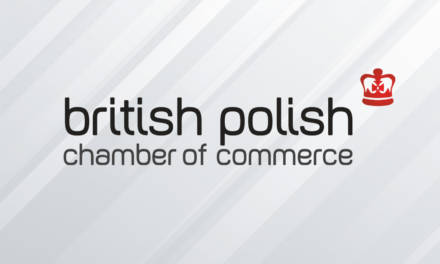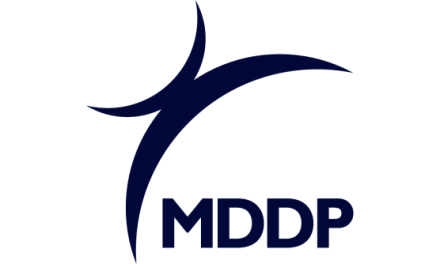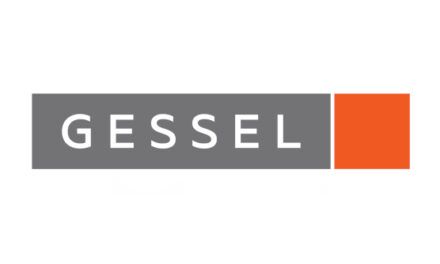
By Su Kent, global communications director, Crayon

In today’s data-driven world, organisations face the constant challenge of efficiently retrieving and leveraging vast amounts of their own information. Outdated data retrieval methods often result in time-consuming manual searches, scattered data sources, and decreased productivity.
There is an answer – and it’s powered by artificial intelligence. AI can be put to use to streamline intelligent search, and to make sense of the data extracted.
Let’s jump in with an example, a use-case, to illustrate how a company’s existing data can be searched and summarised.
For this case, Crayon built a model for a company that rents car-parks at various locations across a city. To manage them all, a company employee would typically need to trawl through various data sources across multiple databases – looking for rental agreement contracts and relevant emails – to know the total capacity and the total rent, as well as having the information broken down by individual car parks.
Using a large language model to extract information in response to a series of questions and OpenAI to retrieve the relevant information for each question, all the findings are then aggregated. Utilising natural language queries, individuals can now interact with the system as if conversing with someone. This is made possible through the powerful language models of Azure OpenAI.
In our case study, the operations manager wants to know the capacity of the car park on Marco Polo Promenade and how much the rent is; they can ask: “How many cars can be parked in the parking lot on Marco Polo Promenade?”
The system quickly processes the query and within a matter of just a few seconds, the system provides an accurate response, stating that the car park has a capacity of 25 cars, and is exclusively designated for the tenant during the term of the rental agreement (it provides more context to the original question). In response to the next question – “What is the monthly rent?” – the system responds by giving the amount in euro and adds when it is payable, as it understands the context of the questions and cites the documents from where it sourced the information.
One notable feature of Crayon’s solution is built upon is the ability to summarise information. In the case of the car-park contracts, the user can request a summary of the contract. Leveraging intelligent document understanding, the system generates a concise summary, in the form of a table, enabling the operations manager to grasp key details at a glance and without having to read through lengthy documents. And the system can handle more complex queries that involve combining information from multiple contracts. For example, if the operations manager then asks about the combined rent of the car park on Marco Polo Promenade along with the adjacent office space, the system seamlessly retrieves the necessary data and presents it clearly and concisely, presenting the combined rent amount.
With instant access to this relevant data, the manager can make informed choices, optimise the company’s parking strategy, and allocate resources more effectively.
The car-park example showcases the transformative power of Crayon’s AI solution in simplifying complex information retrieval processes. Through natural language processing and intelligent search capabilities, businesses can streamline operations, enhance customer experiences, and gain a competitive edge in their industry.
Tapping into the potential of Azure OpenAI to build AI solutions
Crayon’s AI team builds solutions customising Azure Cognitive Search and Azure OpenAI along with other complementary tools. Azure Cognitive Search provides an intelligent search engine as a service, enabling organisations to implement comprehensive search functionality across various data sources. Complementing this, Azure OpenAI combines the power of advanced language models with Azure’s robust cloud infrastructure, offering natural-language processing capabilities and context-aware responses.
Organisations can streamline their information retrieval processes and overcome common challenges by securely integrating Azure OpenAI and Cognitive Search into their own business systems. These cutting-edge technologies provide powerful features that enhance information access.
These advanced search capabilities in Crayon’s AI solutions enable organisations to build comprehensive search indexes across diverse data sources, including documents, databases, and websites. And, because search becomes a unified experience, it significantly improves efficiency, eliminating the need to manually search multiple platforms, not to mention how it can make time savings.
One of the key strengths of Azure OpenAI is its ability to process queries in natural language. This empowers users to interact with information retrieval systems as if they were conversing with a human. By leveraging Azure OpenAI’s language models – Crayon builds its solutions on top of these – so that users can ask complex questions in plain language and receive accurate and relevant responses. This simplifies the search process and enables faster and more intuitive access to critical information.
Intelligent document understanding
Azure OpenAI’s cognitive capabilities offer intelligent document understanding, allowing organisations to extract vital insights from unstructured data. This feature automatically identifies and extracts relevant information from documents, reducing the time and effort required to search and analyse vast amounts of text.
With intelligent document understanding, it is possible to extract key insights from documents. And even better, this can be achieved without any training of the AI model, i.e. there is no need to label customer data, it works straight out of the box.
With instant access to this relevant data, the manager can make informed choices, optimise the company’s parking strategy, and allocate resources more effectively.
A range of benefits that enhance business operations
The parking example above showcases the transformative power of Crayon’s AI solution in simplifying complex information retrieval processes. Through natural language processing and intelligent search capabilities, businesses can streamline operations, enhance customer experiences, and gain a competitive edge.
The implementation of these technologies empowers organisations to retrieve and utilise information effectively to drive success. It brings forth a range of benefits that revolutionise information retrieval and enhance overall business operations:
Improved efficiency and productivity: By automating and optimising information retrieval processes, organisations save valuable time and resources. Employees no longer need to spend hours manually searching for information, allowing them to focus on more critical tasks that drive business growth. With streamlined information retrieval, employees can spend more time to analysing insights and making informed decisions.
Enhanced decision-making: Access to timely and accurate information is crucial for effective decision-making. It enables organisations to quickly retrieve relevant data, analyse trends, and make data-driven decisions. Having instant access to the right information at the right time can transform decision-making processes. Informed choices are backed by comprehensive data analysis.
Seamless integration: Crayon’s solution seamlessly integrates into existing systems and platforms, such as SharePoint, intranets, and custom websites. This ensures a smooth user experience and eliminates the need for significant infrastructure changes or disruptions.
Scalability and flexibility: Azure’s cloud infrastructure offers scalability and flexibility, allowing organisations to adapt their information retrieval capabilities as their needs evolve. Whether dealing with small-scale data or managing large, complex datasets, Crayon’s solution can handle the demands of any organisation.
Embracing a paradigm shift in data management
Analytical databases and traditional data warehousing are being challenged by a new approach to data management. Analytical databases are dead. The future lies in centralising all information in a data lake. This eliminates the need for complex database schemas, enabling direct communication with diverse data sources using powerful language models that can leverage generative AI models to query and retrieve information, revolutionising data-management processes.
This paradigm shift simplifies data access and eliminates the burdens of maintaining global or localised database schemes. By embracing this new approach, organisations can navigate the era of information overload more effectively, accessing and utilising data from various sources to drive valuable insights and decision-making.
























